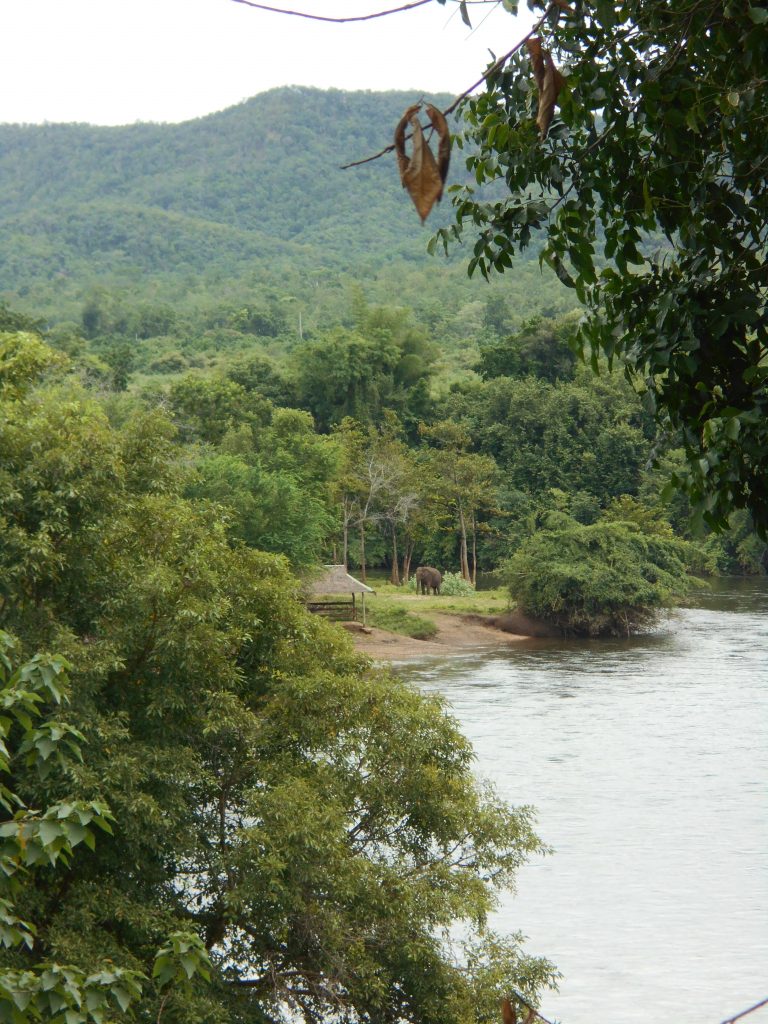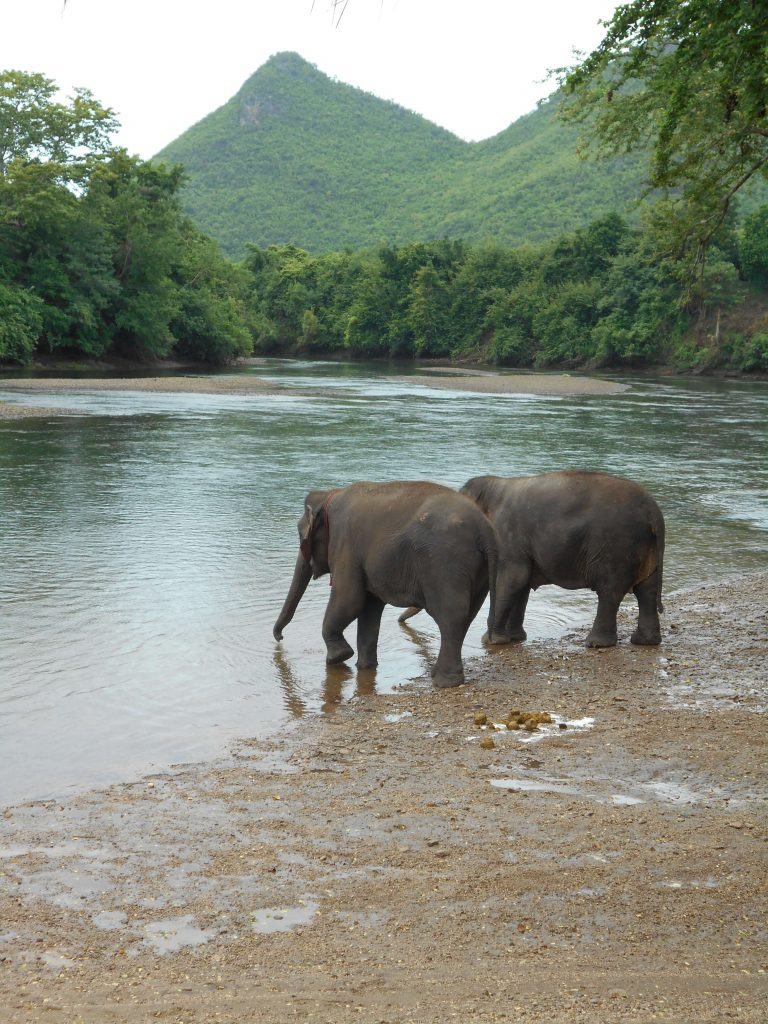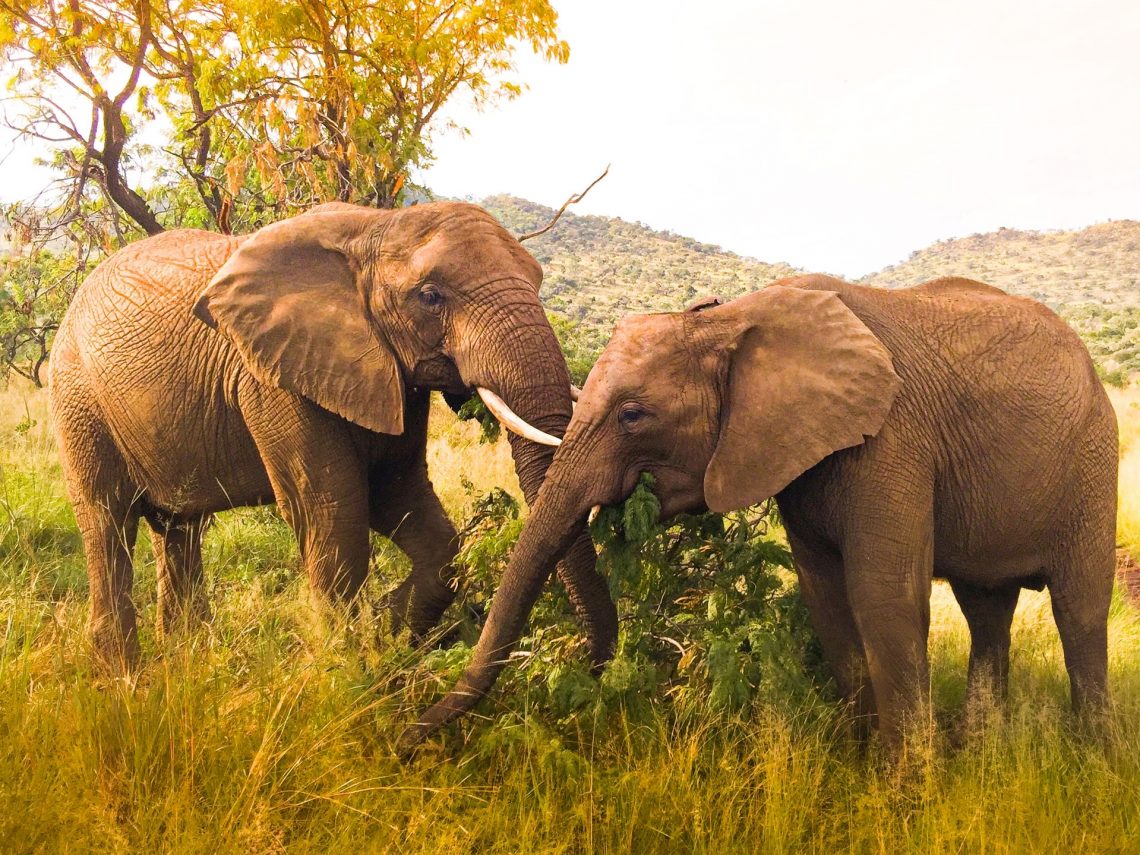
Are Elephant Sanctuaries Ethical?
Why We Should Question if Elephant Sanctuaries are Ethical
The Problem
For those of us who love wildlife, it can sometimes feel like the line between beneficial verses cruel and destructive can be so thin that it can seem almost invisible.
Probably my favourite thing to do in life is to take holidays to see wildlife. I’m sure I’m not the only one.
For the environmentally conscious among us, this is already a minefield. The mere act of getting on a plane wracks me with guilt for most of the year. So, when I arrive at my destination, I want to be confident that I am making choices that help, not hinder, local wildlife and local people.
My Story
Indulge me here.
This post was born of my mistakes. I think it’s important you know that.
August 2017
I was lucky enough to visit Thailand in the summer of 2017.
Like so many before and since, I was desperate to visit one of the famed elephant sanctuaries.
I tried my very best to do some thorough research before I made my decision.
The first choice I made was that I would not, under any circumstances, visit ANY attraction which allowed riding of elephants. There were no breeding programs in the sanctuary. The elephants were there because they had been rescued from logging operations and circus’.
Happy with my decision, we spent a wonderful day feeding the elephants and learning about their care. As the day drew to a close, we were allowed to wash the elephants in the natural lake at the sanctuary.
I left feeling pleased to have had my elephant experience and satisfied that I had made a good choice to spend a day with well looked-after, happy elephants.
Alarm Bells
It was only this year, in 2020, when some of my favourite bloggers, Along Dusty Roads, shared an Instagram post from World Animal Protection. It asked that people do not attend sanctuaries which allow you to wash or really interact with the animals in any way.
I was shocked.
I truly thought that I had made a good decision in the sanctuary I had visited.
Out of curiosity, I flipped through the comments. I wanted to see if others were in the same boat.
They were.
There were endless comments from confused and questioning individuals who had felt they were doing something good in supporting a sanctuary.
So now I needed to know, are elephant sanctuaries ethical? Am I helping or hindering by visiting? Did I make a mistake?
The Case for Sanctuaries
The Grass is Greener
If we are to find an answer to whether elephant sanctuaries are ethical or not, we must first understand the purported reason for their existence.
Across many countries, particularly in Asia, elephants are bred or removed from the wild. They are put to work in the logging industry or to perform for tourists in circus’ and the like.
These demand huge amounts of the elephants in different ways. It might be through hard physical labour or being beaten to submission to learn obedience and tricks.
Some of these elephants have lead a torturous existence.
Sanctuaries are able to remove them from these situations, and, whilst imperfect, place them into a far preferable life.
Conservation, Conservation, Conservation
As I expressed in my post about the value of zoos in conservation, most of us have some view of captivity as a necessary evil if we are to save some critically vulnerable species from extinction.
Elephants are certainly vulnerable in the wild and sanctuaries can go some way to contributing to conservation efforts.
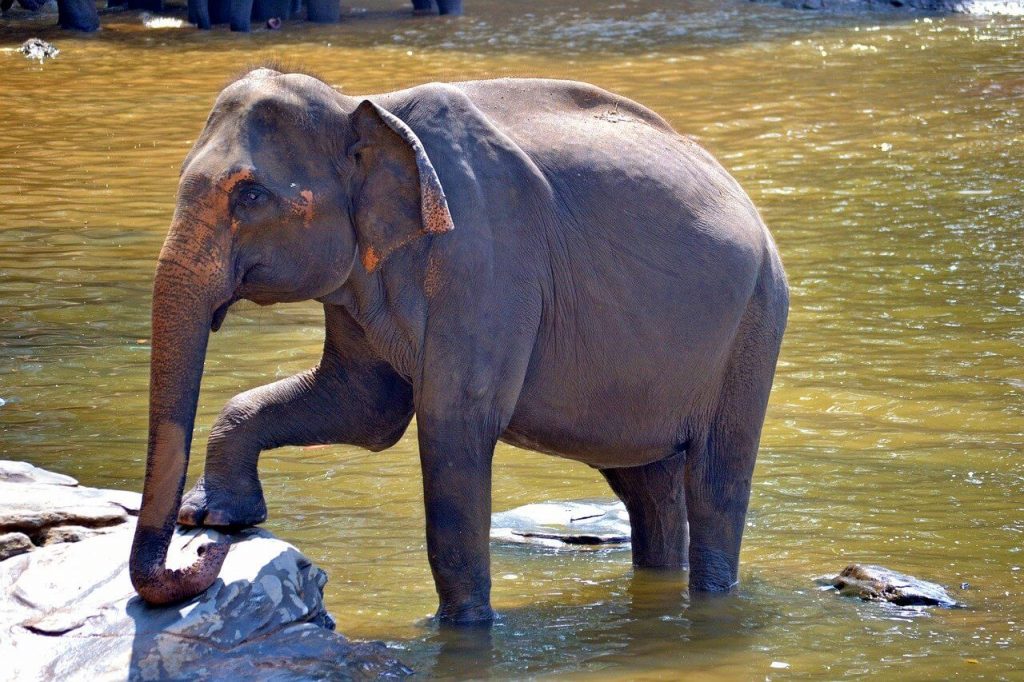
Where It Falls Apart
The Root of all Evil
Firstly, perhaps we should take the question, “are elephant sanctuaries ethical?”, and turn it around. If we instead ask, “is the captivity of animals for human entertainment and profit ethical?”, does that change your answer?
If we are honest with ourselves, this is the definition of what the sanctuaries are actually there to do.
The number one aim is to attract tourists who come for a fun day out and some memories to take home. The reason for attracting tourists is for the money they bring in.
Sure, much of that money is redirected to the care of the rescued elephants, but let’s be honest, it wouldn’t be there if people stopped paying to come…and people wouldn’t pay to come in the enormous numbers they do if it wasn’t an entertaining experience.
The Human Condition
For some reason, humans have an aching desire to touch things. This seems to include wild animals.
That is why the opportunity to bathe an elephant is such an exciting and marketable prospect.
But what I, and countless others, failed to notice is that this is a completely unnatural behaviour for the animals. Being around humans in any capacity is something they would actively avoid in the wild.
Anything that deviates from their natural behaviour should be of concern.
Not Wild, Not Free
Last of all, the element of choice was also taken away from the sanctuary elephants.
If an elephant sanctuary were ethical it would allow them to live a life as close to their natural state as possible. This means doing what they want, when they want.
It means opportunities to forage for food (even if that food is in some more obvious way provided for sick, injured or blinded individuals) on their own timetable, not our enforced one. Times to bathe should be assigned by them, not a tourist itinerary. Their movements should be their own choice, not ours.
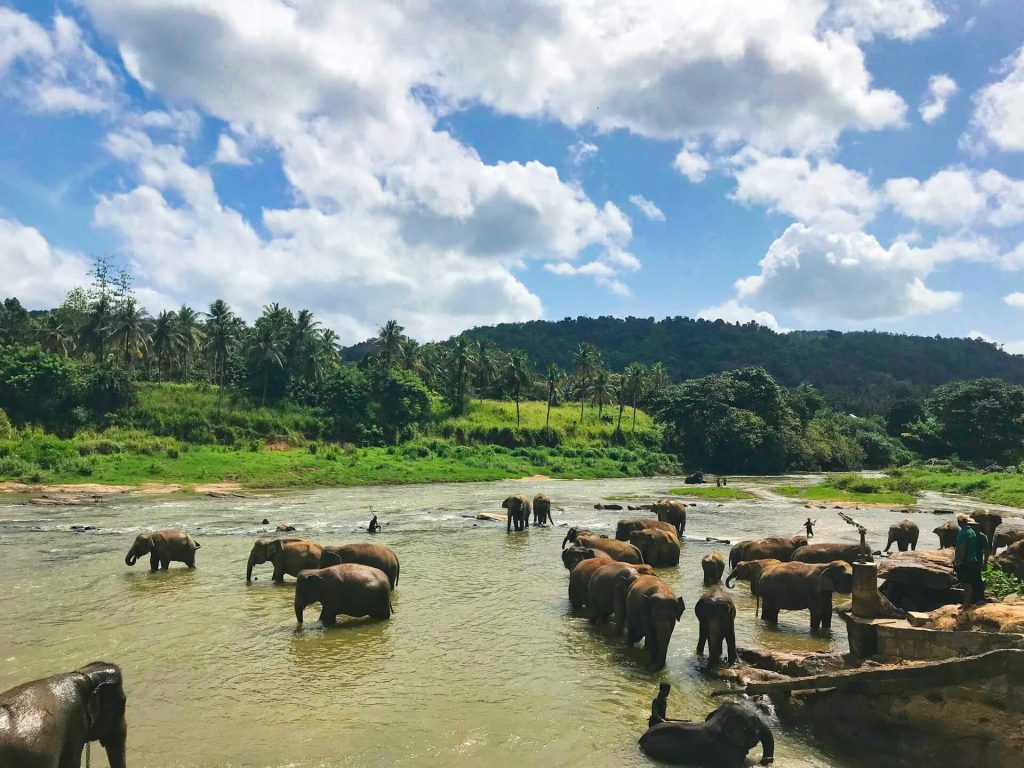
Are Elephant Sanctuaries Ethical?
In My Humble Opinion
Are elephant sanctuaries ethical?
For most, almost certainly not.
It seems obvious to me with hindsight that forcing human contact on animals is not right. Anything that removes their ability to make their own choices should be questioned.
So, what’s the alternative?
What an Ethical Sanctuary Looks Like
Many of the comments on the World Animal Protection post that originally sparked my interest in the topic, centred around the idea that sanctuaries were necessary in order to save the elephants which continue to live in horrifying conditions in industry today.
The general consensus, and my initial thought, was that without sanctuaries, hundreds of elephants would be forced to live out their days under far worse conditions.
What I didn’t realise is that alternatives do exist. There are nature parks where the animals roam (relatively) free and only make contact with humans on their own terms.
These are where the future should lie. This is what we should be putting our money behind.
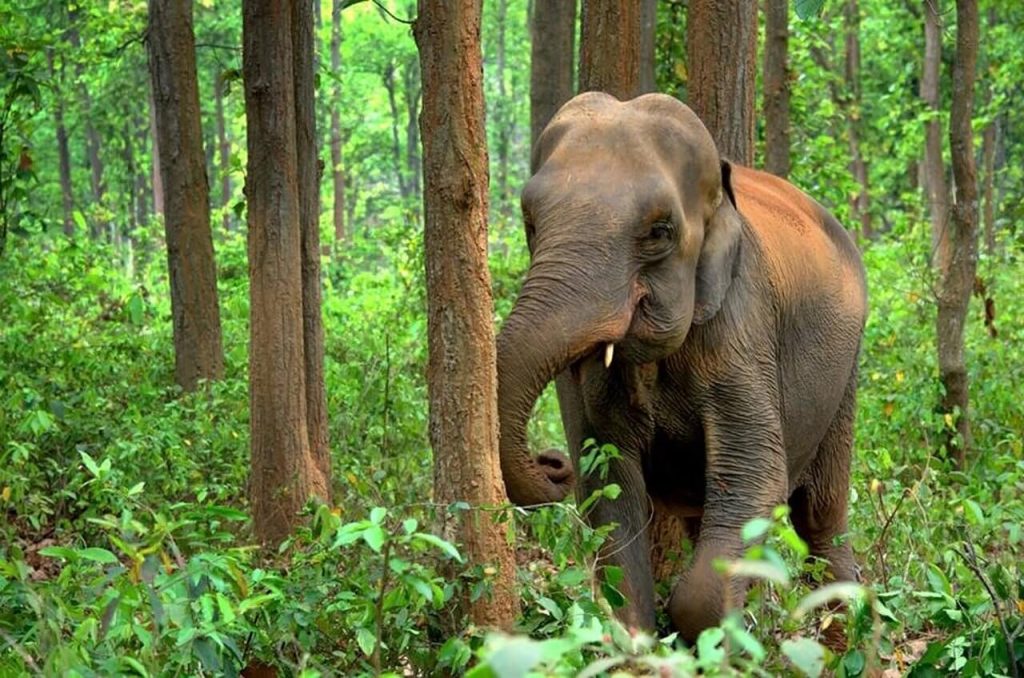
One Wild Thing
If you find yourself considering a visit to an elephant sanctuary, take the time to do your research.
Your money speaks louder than anything when it comes to affecting change.
Checklist
Before booking to visit a sanctuary, take the following guidance to make a better decision than I did:
- No offer of elephant rides- most of us are aware of the damage that riding elephants can do to their spines. This is a HUGE red line. If a so-called “sanctuary” offers rides, don’t even think about giving them your money.
- No performing elephants- an elephant which is expected to paint, dance or anything else for your own entertainment, has likely had to undergo some pretty harsh treatment to get to that stage. Again, stay away.
- No forced human contact- look at the itinerary for your day. If it involves an elephant being touched against its will, you should question this as a choice. If an elephant sanctuary is ethical, it will be the animal’s choice to come to you. Not the other way around.
- Ability to fulfil natural instincts- Elephants naturally forage for food. They naturally interact with other elephants. Look for sanctuaries that allow them to fulfil their needs on their own timetable.
- Limited numbers of visitors- Huge numbers of visitors coming and going every day probably should be a red flag as this could be disturbing to the elephant’s day to day lives. Look for sanctuaries offering limited numbers of guests the opportunity to join them.
In Conclusion
Elephant sanctuaries of this nature can be far more ethical. They can take the form of parks where the elephants can roam as if they were free.
These parks still provide employment for local people and rescue tortured elephants, whilst also keeping the wellbeing of the animals first and foremost in their mission.
Nature parks may be more expensive to visit, but you’ll be happy in the knowledge that you made the conscious choice to make the world a bit better.
This article from the Guardian provides some hugely useful suggestions for ethical elephant sanctuaries across the world.
Stephanie Schuttler, an elephant researcher and fellow blogger, also has a great article on the subject.



